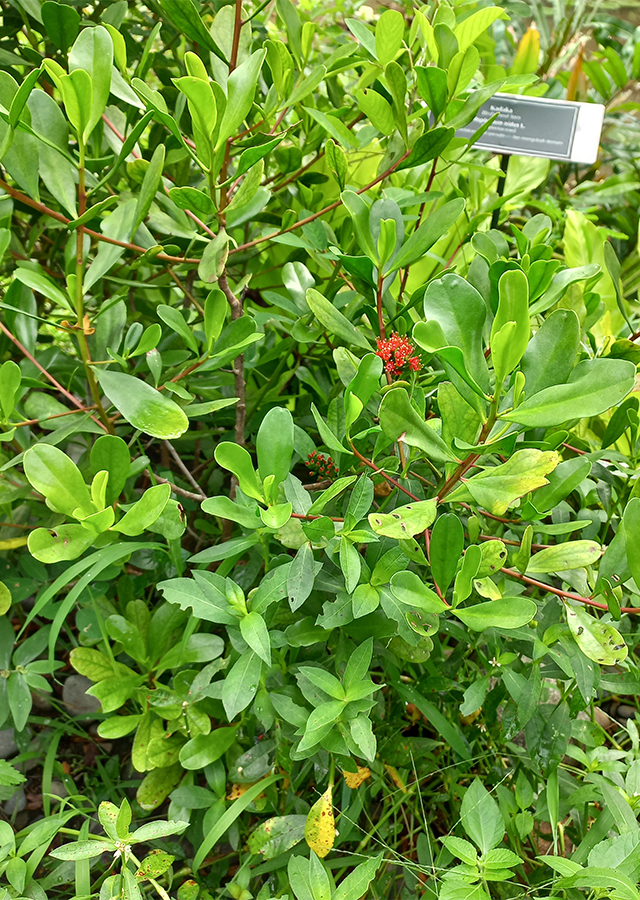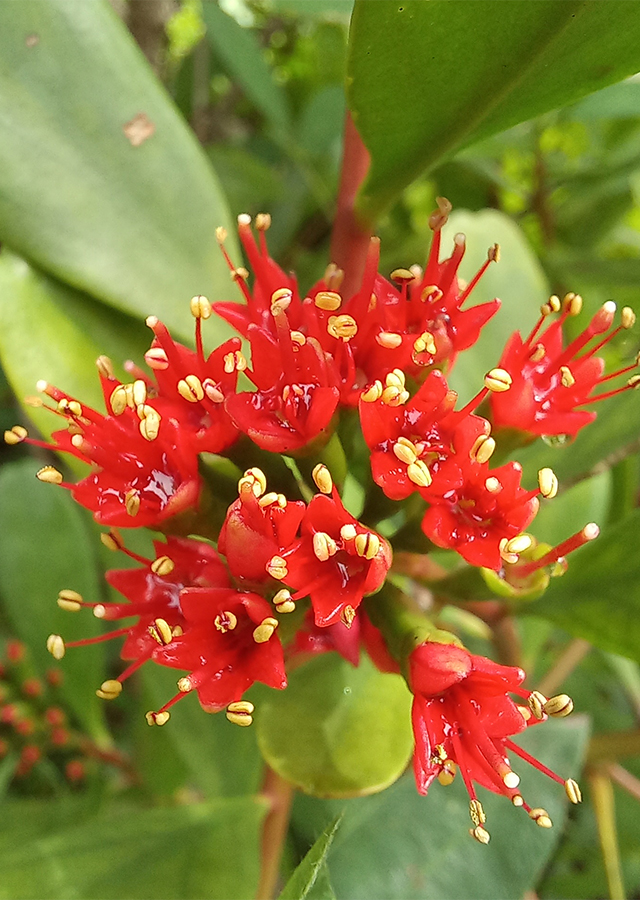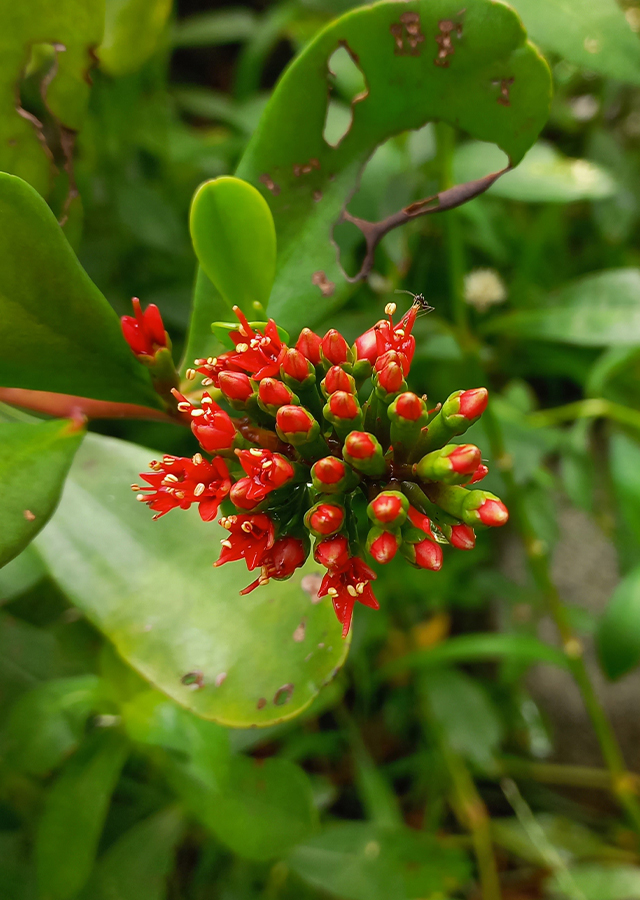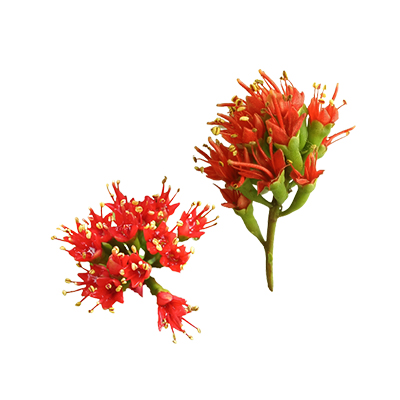Red Teruntum
Lumnitzera littorea (Jack) Voigt
Combretaceae
Location in our garden
Orchard



Synonym
Lumnitzera coccinea Wight & Arn.
Bruguiera littorea (Jack) Steud.
Laguncularia coccinea Gaudich.
Habitus
Trees. An evergreen, much-branched tree that can grow from 7 - 25 m tall
Part Used
Leaves
Bark
Flowers
Roots
Growing Requirements
Full Sunshine
Need Shade
Habitat
Wetland
Forest
Coastal
Overview
Its native distribution covers India, Sri Lanka, Southern China, South East Asia (including Singapore), Australia and the Pacific Islands. The wood is harvested from the wild for local use. With its beautiful red flowers, the plant is sometimes planted for ornament. Although it is common and has a very wide range, populations of this plant are decreasing due to habitat loss. The plant is classified as 'Least Concern' in the IUCN Red List of Threatened Species (2011).
Vernacular Names
No information found
Agroecology
A plant of the lowland moist tropics, where it is found at about sea level. It grows best in areas where the mean annual temperature is in the range 22 - 28 °C, but can tolerate 10 - 32 °C. It prefers a mean annual rainfall in the range 1.000 - 2.500 mm, tolerating 800 - 4.000 mm. Prefers a sunny position and a heavy soil. Prefers a pH in the range 6,8 - 7,2, but tolerates 6,5 - 7,5. Tolerant of saline soils, the plant is adapted to conditions found in mangrove swamps.
Morphology
- Barks - dark brown and fissured.
- Leaves - alternate, shortly-stalked leaves have obovate leaf blades that are 2-9 by 1-2,5 cm, slightly thick and fleshy.
- Flowers - shortly-stalked, scented flowers are 1-3 by 0,5 cm, with green fused sepals, and bright red petals.
- Fruits - one-seeded fruits are vase-shaped, tinged red, and are 1-2 by 0,3-0,7 cm, with a fibrous fruit wall, allowing it to float.
Cultivation
Propagated by seeds.
Chemical Constituents
Quercetin, quercitrin, myricetin, myricitrin, naringenin, chrysoeriol, pilloin, afzelin, myricetin 3-O-(4′′-O-galloyl)-α-L-rhamnopyranoside, flavonoid glycoside, triterpene, sterol, macrocyclic lactones, 6,7 -dimethoxycoumarin.
Traditional Medicinal Uses
- Cure acne, thrush in babies, promote hair growth, soothe and soften skin, treat skin itching, induce sweating, reduce fever, relieve constipation, act as a diuretic.
Part Used
Reference Sources
- Fern, Ken. Useful Tropical Plants. (2021). Lumnitzera littorea. http://tropical.theferns.info/viewtropical.php?id=Lumnitzera+littorea. 22-12-21.
- Flora & Fauna Web. (2021). Lumnitzera littorea. https://www.nparks.gov.sg/FloraFaunaWeb/Flora/3/2/3266. 22-12-21.



